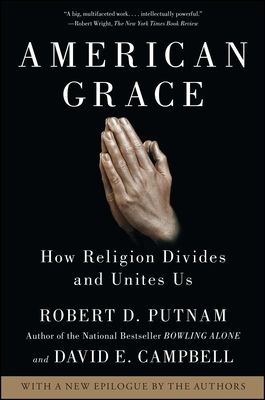Home
The Faith Factor: How Religion Influences American Elections
Loading Inventory...
Barnes and Noble
The Faith Factor: How Religion Influences American Elections
Current price: $55.00


Barnes and Noble
The Faith Factor: How Religion Influences American Elections
Current price: $55.00
Loading Inventory...
Size: OS
*Product Information may vary - to confirm product availability, pricing, and additional information please contact Barnes and Noble
The impact of religion on the 2004 presidential election results provoked widespread consternation and surprise. In fact, religion and faith have played a vital role in American elections for some time, and here, Green explores the links and how they have changed over time.Green posits that an old religion gap describing longstanding political differences among religious communities has been supplanted by a new religion gap revealing political divisions based on religious behavior and belief. He puts the differences into context and documents the changing role of religion in politics over the last 60 years.
The impact of religion on the 2004 presidential election results provoked widespread consternation and surprise. Given the intensity and closeness of the results, however, the role of religion should not have come as a shock. In fact, religion and faith have played a vital role in American elections for some time, and here, Green explores the links and how they have changed over time. Specifically, he concludes that there was an old religion gap that described longstanding political differences among religious communities, which has been supplanted by a new religion gap that shows political divisions based on religious behavior and belief. Green puts the differences into context and documents the changing role of religion in politics over the last sixty years.
Covering three areas of religion that tend to influence election outcomes, Green illuminates the meaning of religious belonging, behaving, and believing in current political context. Each of these aspects of religion affects the way people vote and their views of issues, ideology, and partisanship. He reviews the importance of moral values in the major party coalitions and discusses the role religious appeals have in presidential campaigns. In addition, he compares the influence of religion to other factors such as gender, age, and income. Given the emphasis on the influence of religion on American politics and elections in recent years, this book serves as a cogent reminder that the situation is not new, and offers a careful analysis of the real role faith plays in the electing of government officials.
The impact of religion on the 2004 presidential election results provoked widespread consternation and surprise. Given the intensity and closeness of the results, however, the role of religion should not have come as a shock. In fact, religion and faith have played a vital role in American elections for some time, and here, Green explores the links and how they have changed over time. Specifically, he concludes that there was an old religion gap that described longstanding political differences among religious communities, which has been supplanted by a new religion gap that shows political divisions based on religious behavior and belief. Green puts the differences into context and documents the changing role of religion in politics over the last sixty years.
Covering three areas of religion that tend to influence election outcomes, Green illuminates the meaning of religious belonging, behaving, and believing in current political context. Each of these aspects of religion affects the way people vote and their views of issues, ideology, and partisanship. He reviews the importance of moral values in the major party coalitions and discusses the role religious appeals have in presidential campaigns. In addition, he compares the influence of religion to other factors such as gender, age, and income. Given the emphasis on the influence of religion on American politics and elections in recent years, this book serves as a cogent reminder that the situation is not new, and offers a careful analysis of the real role faith plays in the electing of government officials.


















